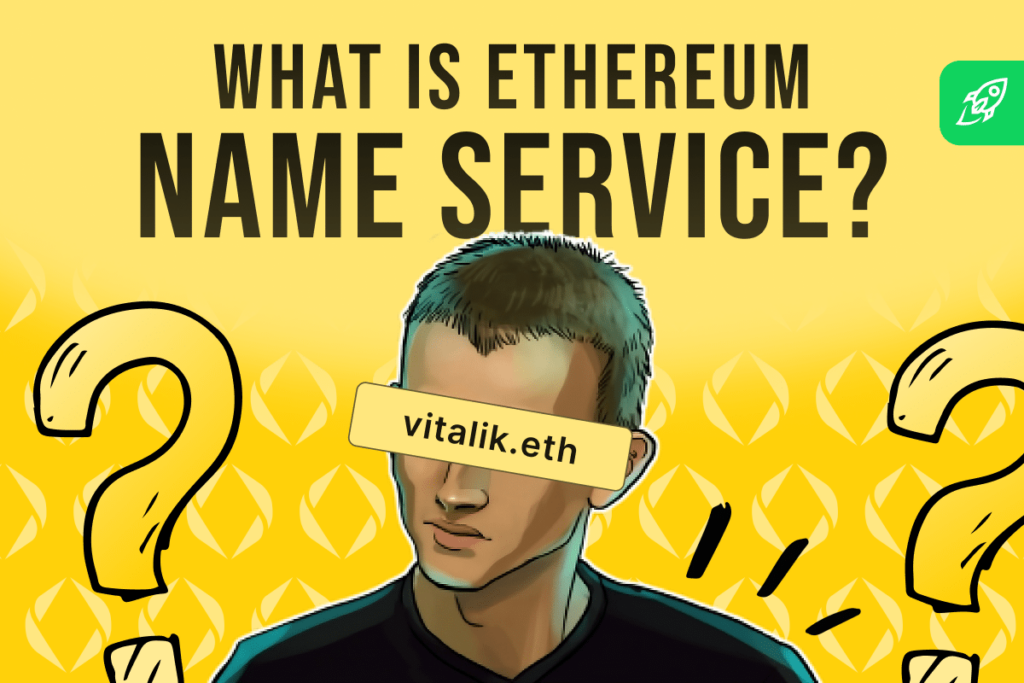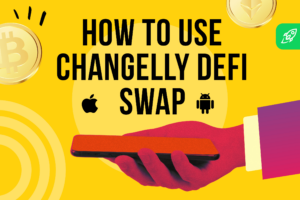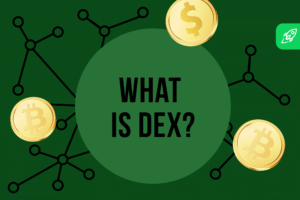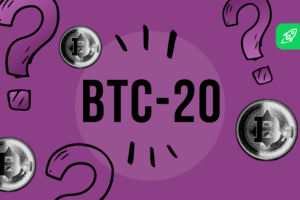Your Guide to the Digital World of ENS Domains – Cryptocurrency News & Trading Tips – Crypto Blog by Changelly

Navigating the vast universe of Ethereum and blockchain can sometimes feel like deciphering a foreign language. Amidst all the technical jargon, the Ethereum Name Service (ENS) stands as a beacon of simplicity. Let's embark on a journey to understand what ENS is, why it is so essential and how it is shaping the future of the digital world.
Hello! I am Zifa, a cryptocurrency enthusiast with three years of experience in the blockchain world. Whether you're new to cryptocurrency or a seasoned expert, I'm here to share insights and updates from this ever-evolving domain.
What is ENS?
Imagine you are in a huge city where every house has a complicated numerical address. It's hard to remember, isn't it? What if you could replace it with a simple name like “BlueBird Lane”? That's ENS in a nutshell, but for the Ethereum blockchain.
Every account or smart contract on Ethereum has an address. But instead of being user-friendly, these addresses look like “0x123s…abzcd”. ENS was introduced to replace these complex strings with memorable names such as “zifa.eth”.
Developed primarily by Nick Johnson and launched in May 2017, ENS runs on the Ethereum blockchain. This decentralized nature ensures that it is not controlled by any single entity, making it innovative and secure.
Does ENS have a token?
Yes, ENS has a token. ENS is the control token of the Ethereum Name Service protocol, which is responsible for issuing “.ens” domains. As an ERC-20 utility token, ENS is internally connected to the Ethereum Name Service, a decentralized naming system built on the Ethereum network.
This token was distributed via airdrop to all ENS domain holders, ENS project contributors and ENS DAO community treasury. From the very beginning, its primary function was to manage the ENS protocol and community treasury.
Is Ethereum Name Service a good buy?
The value proposition of the Ethereum Name Service (ENS) is highly dependent on individual use cases and the broader adoption of Ethereum and Web 3.0 technologies. For those deeply involved in the Ethereum ecosystem or betting on the growth of decentralized applications, ENS domain names can offer both useful and potential branding opportunities. However, as with all investments, it is essential to do thorough research and consider your financial goals and risk tolerance.
How to buy Ethereum Name Service Token?
If you are interested in getting an Ethereum Name Service (ENS) token, Changelly will help you. Simply visit our dedicated page to effortlessly exchange Ethereum, Bitcoin or any of our 500+ digital assets for ENS tokens. Dive into the world of decentralized domain naming with Changelly by your side!
How does ENS work?
ENS, or Ethereum Name Service, is like a digital translator for the Ethereum universe. Imagine using a map: you enter the name of a place and the map determines its exact location. Similarly, when you enter an Ethereum name like “zifa.eth”, ENS will dive into its records and translate that name to the corresponding Ethereum address or other related data.
Here's a deeper dive: Each domain name within the ENS has an owner, known as the “Registrar”. They register the chosen domain on ENS. This registration process is overseen by the “registry”, a component of the ENS that keeps track of these domain allocations. The “registrars”, the smart contracts that manage these domain names, operate under a master registrar. These registrars can be modified by the domain owner as needed.
Now there is a difference between owning a name and registering it. “Name” is how ENS identifies the domain, for example “john.eth”. These names are processed using an algorithm called “namehash”. This is because ENS does not directly use user-friendly names; instead, it converts them into 256-bit cryptographic hashes. For example, “john.eth” can be represented as a unique hash like 0x787192fc5378cc32aa. Before hashing, the names are normalized to ensure consistency, meaning that “John.eth” and “John.eth” are considered the same.
To illustrate its real-world utility, imagine that Jack wants to send Ethereum to Rose. Instead of asking for her complex Ethereum address, it simply asks for her ENS name. Rose matches “rose.eth”. Jack puts it in his Ethereum wallet and using the ENS charm it is automatically converted to Rose's real Ethereum address. Voilà, the transaction is complete!
Can I use ENS?
Absolutely! ENS is open to anyone interested in registering a more user-friendly domain for their Ethereum address. Whether you are an individual who wants a personalized Ethereum address or a business seeking a brand presence in the Ethereum ecosystem, ENS provides a platform to acquire the desired domain, making your interactions on the blockchain more recognizable and straightforward.
How to buy and set up an ENS domain
How much is the Ethereum name service fee?
ENS domain registration comes with an annual renewal fee. For names that are 5 characters or longer, the cost is $5 per year. If you're looking at a 4-digit name, that'll run you $160 a year. And for these ultra short 3 character names the fee is $640 every year. It is important to note that these fees are paid in ETH, Ethereum's native cryptocurrency.
Why is Ethereum Name Service important?
ENS is like the unsung hero of the Ethereum ecosystem. Here's why:
- Simplicity: Just as you prefer “BlueBird Lane” to a confusing string of numbers, ENS offers easy-to-remember names. This drastically reduces errors. For example, sending resources to “alice.eth” is much more intuitive than a long alphanumeric address.
- Versatility: In addition to Ethereum addresses, ENS can refer to other data such as web pages. In the future, someone may direct you to their website using “alice.eth” instead of a traditional URL.
- Decentralization and security: Traditional domain systems can be controlled or censored by centralized entities. ENS, which is part of the Ethereum blockchain, is decentralized and ensures robust security.
- Promoting the Decentralized Web: With the growth of the decentralized web (Web 3.0), ENS names could become as common as .com domains, paving the way for a more connected and decentralized internet.
Is Ethereum Name Service secure?
ENS runs on the Ethereum blockchain, which is known for its security and decentralization. This ensures that the basic mechanics of the ENS are solid and tamper-proof. However, users should always exercise caution, verify that they are communicating with the official ENS platform, and keep their private keys and domain management tools secure to prevent possible misuse or loss.
ENS and Web 3.0: Match Made in Digital Heaven
Web 3.0 is the next phase of Internet development. While our current internet (Web 2.0) is centralized, Web 3.0 aims to decentralize everything and give power back to users.
ENS is the cornerstone of this vision. Traditional domains like “.com” or “.net” are managed by centralized entities. But ENS domains like “rose.eth” are on the Ethereum blockchain, making them decentralized.
As decentralized applications (dApps) and other Web 3.0 technologies evolve, they will need user-friendly addresses. Imagine the new Web 3.0 social media platform where you would have to remember the blockchain address of every friend. Not very user friendly, is it? ENS simplifies this and allows users to work with memorable names, making Web 3.0 easier to work with.
Basically, ENS is not just a tool for Ethereum; it is an essential piece of the Web 3.0 puzzle. In the transition to a more decentralized internet, ENS will play a key role in ensuring that this new digital realm is accessible and user-friendly.
Disclaimer: Please note that the content of this article is not financial or investment advice. The information provided in this article is solely the opinion of the author and should not be considered a trading or investment recommendation. We make no guarantees as to the completeness, reliability or accuracy of this information. The cryptocurrency market suffers from high volatility and occasional arbitrary movements. Any investor, trader or regular user of cryptocurrencies should research the various points of view and familiarize themselves with all local regulations before investing.





